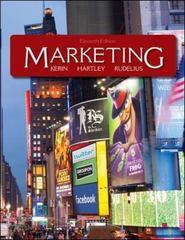Question
Chapter 27 1. What is the basic concept about money and time? 2. What are the different levels of people's tolerance to risk? 3. Be
Chapter 27
1. What is the basic concept about money and time?
2. What are the different levels of people's tolerance to risk?
3. Be able to calculate using the excel worksheets
A monthly mortgage payment
A specific mortgage payment interest due and principal due
How much loan a person could qualify for given specific information
How long till 1 million dollars given specific information What is the purpose of diversification?
Chapter 28
4. Unemployment and a healthy economy - what is the relationship?
5. Be able to pick out an employed, unemployed or neither employed or unemployed person from a group of people.
6. Why is there frictional unemployment? What rate of unemployment will never occur in an open economy?
7. Understand what it means for a person's employment in a Right-To-Work state. Be able to identify correct statements about the Theory of Efficiency Wages.
Chapter 29
8. What is money?
9. What is Fiat Money?
10. What is Commodity Money?
11. What is M1 and M2 Money?
12. What are the functions of money?
13. What is a credit card really?
14. Who sets Monetary policy?
15. Who sets Fiscal policy?
16. What is Leveraging?
17. What is Equity?
18. What is a Reserve Ration?
19. What do money economist believe was the cause to the 2008 Great Recession?
Chapter 30
20. Be able to apply the Classical Theory of Inflation to an example.
21. What determines the value of money?
22. What determines the supply of money?
23. What determines the demand for money?
24. Be able to recognize a nominal price, real price, and/or relative price.
25. How does the amount of money the Fed print affect productivity and output?
26. What happens to inflation if the supply of money increase or decreases?
27. Be able to find the cost(s) of inflation from a list.
Chapter 31
28. Be able to find the factor(s) that can affect trade.
29. Be able to identify example of foreign direct investment and foreign portfolio investment.
30. How does capital flow if there is a trade deficit or trade surplus?
31. What is the nation's saving equal to?
32. What keep most people from understanding the full effects of the US Trade Deficit?
33. What is a nominal exchange rate?
34. Be able to You will be given the real exchange rate formula and some data.
35. Be able to determine if a company should buy domestic or foreign product.
36. Be able to pick out a price of an item based on the Purchasing-Power Parity Theory. Burgernomics is fun, but it also tells us what about exchange rates?
37. Personal Economic and Finance Knowledge Be able to pick up if a type of credit is single-payment, installment, or revolving.
38. Understand what each law present in the lecture was created to do.
39. What is credit repair and how easy it to do?
40. From the "versus" section, you will be asked to correctly select which one of the two would make makes a statement correct.
41. What is the 50/30/20 rule?
42. If you must carry a balance, it should be lower than what % of your available credit lmit?
Step by Step Solution
There are 3 Steps involved in it
Step: 1

Get Instant Access to Expert-Tailored Solutions
See step-by-step solutions with expert insights and AI powered tools for academic success
Step: 2

Step: 3

Ace Your Homework with AI
Get the answers you need in no time with our AI-driven, step-by-step assistance
Get Started


